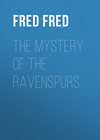Read the book: «The Weight of the Crown», page 6
CHAPTER XIII
THE MODERN JOURNALIST
The old diplomatist looked coldly and suspiciously at the speaker. It was hardly the way for a young man to address a Cabinet Minister, and one who, moreover, was Secretary of State for Foreign Affairs. Varney saw what was passing through Lord Merehaven's mind and promptly interfered.
"For heaven's sake, don't stand on ceremony!" he said. "This is an exceedingly serious matter. Certain important papers are missing from the Foreign Office. It is alleged that confidence has been betrayed by Captain Lancing and Mr. Charles Maxwell. The boys are shouting it in the streets, probably most of your guests know all about it by this time. Those papers have been sold, or given to somebody who has made use of them. This is no canard to sell a few miserable papers."
"The documents you refer to were in my hands at seven o'clock," Lord Merehaven said. "I read them and made notes on the margin of them in my office not long before dinner – "
"And did you lock them up in your safe afterwards?" Varney asked.
"No, I didn't. There is no safe in my office. I gave the papers to Captain Lancing and Mr. Maxwell, and asked them to see that they were securely placed away. Then I came home. Do you mean to say that this thing has been over London for the past hour and I never knew it?"
"So it seems," Varney said coolly. "How should you know it when you have not been out of the house all the evening? And none of your guests could get at you to ask questions, seeing that you have been closeted with one ambassador or another ever since dinner."
"That's quite true," Lord Merehaven admitted moodily. "But what is to be done? You don't suggest that the contents of those papers is made public?"
"I fancy not," Varney replied. "My dear Sir Reginald, you have read that paragraph. What does it say?"
The stricken man in the armchair looked up with dulled eyes. It was some little time before he could be made to understand the drift of the question.
"I am trying to remember," he said, passing his hand over his forehead. "As far as I can recollect, there were no details given. The paragraph said that certain important papers had been stolen from the Foreign Office, and handed over to the enemies of this country. The editor of the Mercury was supposed to be in a position to vouch for this, and he hinted very freely at the identity of the culprits. A résumé of the missing papers was promised for the morning issue of the Mercury to-morrow. Then there was a break in the report, and down below a short history of my son's suicide. This was pointed to as an absolute confirmation of the news, the suggestion being that my son had shot himself after reading the nine o'clock edition of the Mercury, which contained the first part of the report."
"There is some foul and mysterious business here," Ronald Hope said sternly. "It is only twenty minutes ago that I heard what the boys were calling out. I immediately took a hansom to Maxwell's rooms, to find that he had gone to Paris in a great hurry. He had left no message behind him. He had not even taken his man, whom he never travels without."
"He has fled," Merehaven said promptly. "This thing is absolutely true. What beats me is the prompt way in which these Mercury people collected the news."
"That is where I come in," Varney remarked. "We'll get Lechmere into this, if you don't mind? Sir Reginald had better stay here for the present. Lechmere shall go and interview Hunt of the Mercury. And if he does not bring back some very startling news, I shall be greatly mistaken."
Lechmere came into the study cool, collected, and imperturbable as ever. He had quite relinquished his old pursuits and occupations now, but he was delighted to do anything to be of service to Lord Merehaven and the Government; in point of fact, he would rather enjoy this adventure. What was he to do?
"Find Hunt of the Mercury," Varney said. "Run him down in a corner, and let him know that you are not the man to be trifled with. And when you have done that, make him tell you the exact time that he got his information over those missing papers."
Lechmere nodded without asking further questions. He knew that he would be told everything in time. He would do what he could, and return and report progress as soon as possible. His first move was to take a hansom and go down to the office of the Mercury and there ask for Mr. Hunt. But Hunt was not in; he had gone away about half-past seven and had not returned yet. Usually he looked in a little after midnight to see that the evening edition of the paper was progressing all right. So far as the chief sub-editor could say, Mr. Hunt had gone to the Carlton to supper.
"Something gained," Lechmere muttered, as he drove to the Carlton. "If that chap left the office at half-past seven, that sensational paragraph had already been passed for the Press. No assistant editor would dare to shove that into a paper on his own responsibility. Very smart of them to get Lancing's suicide. But I expect some American reporter shadowed the poor chap."
Mr. Hunt had been to the Carlton; in fact, he had just arrived there, but he was in a private room with a lady, and had asked not to be disturbed. Intimating that he would wait, Lechmere took his seat at a little table in one of the public rooms and asked for something. He had a sovereign on the table by the side of his glass, and looked significantly at the waiter.
"That is for you to earn," he said, "if you are smart and do your work properly. In the first place, do you happen to know Mr. Hunt, the editor of the Mercury?"
The man replied that he knew Mr. Hunt quite well. In fact, he was pretty intimately acquainted with all the American colony in London. Mr. Hunt supped at the Carlton frequently; he was supping now with a lady in a room upstairs. Lechmere began to see his way.
"Did you happen to see the lady?" he asked. "If so, what was she like?"
"I saw them come not many minutes ago. In fact, they looked in here, and the lady wanted to take the table by the door, but Mr. Hunt said 'No.' They appeared to be in a great hurry, seeing that it is getting late; and it seemed to me that Mr. Hunt was not so amiable as usual. The lady was tall and dark; she had a black wrap, and under it was a dress of yellow satin."
"Good man!" Lechmere said with genial warmth. "You have earned your money. All you have to do now is to let me know the moment that Mr. Hunt is leaving the hotel. In any case it can't be long, because it is nearly twenty minutes past twelve now."
The waiter came back presently and pocketed his sovereign. Mr. Hunt and the lady were just leaving the hotel. Lechmere sauntered into the hall and stood watching the other two. He smiled to himself as he noted the face and features of Hunt's companion. A hansom stood at the door, and into it the American handed his companion and raised his hat.
"It will come out all right," Lechmere heard the lady say. "Don't look so annoyed. Your paper is not going to be allowed to suffer. Good-night!"
The hansom drove away, and Hunt raised his hat. As he stopped to light a cigarette, Lechmere crept up behind him and tapped him on the shoulder. The American turned in a startled way.
"Mr. Lechmere!" he stammered. "Really, you gave me a start. If there is anything that I can do for you – ?"
"There is," Lechmere said in a sharp, stern way. "I want to know the exact time that your office received the unfortunate news of the Foreign Office business."
The directness of the attack took the American quite off his balance. The truth broke from him.
"About ten minutes to seven," he stammered. "That is to say – But, confound it all, what business is that of yours?"
Lechmere smiled; he could afford to let the other bluster now that he had learnt everything. He turned the matter aside as a joke. He made some remark about the beauty of the night, and a minute later he was bowling back in a hansom to Merehaven House.
"Yes, I have done pretty well," he said in reply to Varney's questioning gaze. "I have seen Hunt, whom I traced to the Carlton, where he was supping hastily in company with Countess Saens. I sort of fool-mated him over that paragraph, and he told me that the information reached the Mercury at about ten minutes to seven. He tried to bluster afterwards, but it was too late. At ten minutes to seven Hunt knew all about that scandal at the Foreign Office."
Lord Merehaven threw up his hands with a gesture of astonishment. Varney smiled.
"I knew that you would come back with some amazing information," the latter said. "See how the mystery gets thicker. Lord Merehaven is going to say something."
"I am going to say this," Merehaven remarked sternly. "The Mercury knew of those missing papers before seven o'clock. At seven o'clock those papers were in my hands, and the scandal had not begun then. And yet the Mercury paragraph, written before the robbery, is absolutely true! What does it mean?"
CHAPTER XIV
BAFFLED!
Meanwhile, the Countess Saens had departed from Merehaven House with a smiling assurance to the effect that she did not anticipate any serious loss in consequence of the very mysterious robbery. She looked easy enough as she stepped into her brougham, drawn by the splendid bays that London knew so well by sight, and kissed her fingers gaily to her cavalier. But the brightness left her eyes when once she was alone. There was a keen, eager expression on her face then, a look of mingled anxiety and anger in her dark eyes. The most fascinating woman in London would have surprised her many admirers had they chanced to see her at that moment. She looked old and haggard; the smiling mouth had grown hard as a steel trap. She did not wait for the footman to open the door; she ran up the steps with a curt command that the carriage must wait, as she was presently going out again.
The trembling maid was upstairs awaiting the coming of her mistress. She had very little to add to what she had already said. Nothing appeared to have been disturbed. There was no sign of a robbery anywhere, save that one of the drawers in a dressing table had been turned out and the contents scattered on the floor.
"Now listen to me," the countess said. "Who paid for you to take those papers?"
"I know nothing of any papers, non, non!" the maid replied. "I take nothing. If madame wishes to suggest that I am a thief, I go. I leave to-night."
The girl paced up and down the room, her pale face held high. She was not used to being called a thief. If madame was not satisfied she would depart at once. The countess changed her tone.
"Now listen to me," she said more gently. "Just before dinner to-night I am in receipt of certain papers. Nobody knows that I possess them. For safe keeping I place them in that drawer and lock it up. Some time later you come to me with this story of the burglary. If jewels had been stolen, or money, I would have perhaps understood it, though your tale is so extraordinary that – "
"Not at all, madame," the maid cried hotly. "No more strange than the stories one reads every day in the newspapers. And there are no jewels missing."
"No, and that makes the affair all the more suspicious in my eyes. Nobody could have known about those papers, and yet the thief takes nothing else. A woman walks into the house as if it belonged to her, she goes direct to that drawer, and there you are! You say you saw the woman?"
The maid nodded sulkily; she did not look in the least guilty.
"I have already told madame so," she said. "I saw the woman twice to-night. The first time was when she was here, the second time at the residence of my Lord Merehaven. It was the lady in the satin dress who stood in the hall." The girl spoke in tones of perfect confidence. No ridicule on the part of the countess could shake her belief in the statement.
"But it is impossible," the latter said. "You are speaking of Miss Galloway. I saw Miss Galloway several times during the evening. If you are correct, she must have slipped away and changed her dress, committed the robbery, and be back here and changed her dress again – all in a quarter of an hour."
"Nevertheless, it was the same woman," the maid said with a stubborn air.
With a gesture of contempt the countess dismissed the girl. It was impossible to believe that she had had a hand in the disappearance of those precious papers. Perhaps the hall porter might have something to say in the matter. In the opinion of Countess Saens, the thief was non-existent. At any rate, the hall porter would be able to say.
The hall porter had not much to tell, but that little was to the point. Certainly, about the time mentioned by the maid a woman had come into the house. She had opened the hall door and had walked in herself as if she were quite at home there. She was plainly dressed in black and wore a veil. Then she proceeded to walk upstairs.
"You mean to say that you did nothing to interfere?" the countess asked.
"Well, no, madame," the hall porter admitted. "The young woman appeared to be quite at home; evidently she had been here many times before, and I thought she was a friend of Annette's. Friends of hers do come here sometimes after you have gone out, and one or two of them walk in. So I took no notice whatever. A little time after, the young woman came back as if she were in a hurry, and hastened out of the house. Just as she was gone I heard Annette call out. Thinking that something was the matter, I rushed up the stairs. When I knew what was wrong it was too late to go after the thief."
So Annette had been telling the truth, the countess thought. She was furiously angry at her loss, but it was impossible to blame anybody. It was a stroke of the sword after the countess's own heart. But there were disquieting circumstances behind it that frightened her.
"You had better send again to the nearest police-station," she said. "Let them know that I have gone out and shall not be back for some little time."
With a frown between her delicate brows the countess drove away. In all her bold, dashing, adventurous life she had never been confronted by a more difficult problem than this. She was playing for tremendously high stakes, and her share of the victory was the price of a throne. Once this thing was accomplished, she had no need ever to plot or scheme or trick again. A fortune would be hers, and she would sit secure as a leader of fashion for the rest of her days.
An hour ago and the game was as good as won. Everything had been done so secretly; nobody guessed anything. Another day, and nothing could save the crown in question. And yet in a moment the whole dream had been shattered. Somebody knew exactly what was going on, somebody was at work to checkmate the dark design. And that somebody was bold and daring to a degree. If the countess only knew who the other woman was! It was maddening to work in the dark against so clever a foe. If your enemy knows you and you don't know your enemy, he has a tremendous advantage. The countess clenched her teeth together viciously as she thought of it.
The carriage stopped at length outside the Carlton Hotel, and almost immediately Hunt, the editor of the Evening Mercury, appeared. He looked uneasy and anxious.
"Your message came all right," he said. "I came here at once and ordered supper, though we shall not have much time to talk."
"Then let us go into the room at once," the countess said; "though as to appetite, why – "
"But I ordered the supper in a private room," Hunt protested. "One never knows what people may hear. What is the use of arguing? The supper is all ready for us."
They were in the private room at length. They made some pretence of eating and drinking till the two waiters had for the time being departed. Then Hunt turned to his companion.
"What has happened?" he asked. There was nothing of deference in his manner. It was quite evident that the smart little American editor was no squire of dames. "Your manner was so mysterious. And it is time you did something for your money. Two thousand pounds is a deal to pay for – "
"Such information as I have already given you?" the countess interrupted. "I don't think so, seeing what a tremendous sensation you secured to-night."
"But those other papers," Hunt protested. "You promised me the full details of that private understanding between England and Asturia. I have told my readers boldly that they shall have it in the morning issue of my paper to-morrow morning. If you want the extra money – "
"Man, I want it as an old man wants youth. It is vitally necessary to me. And can't you see that it is to my interest that those papers should be published to the world? It will be a staggering blow to England, and a corresponding advantage to Russia. I should have seen that those papers saw the light whether I was paid for them or not. But they are worth a great deal to you, and that is why I approached you in the matter."
"Yes, yes," Hunt said impatiently. "Please get on. I came here to receive those papers – in fact, the Mercury is waiting for them at this moment. If you will hand them over to me you shall have the other cheque for five thousand posted to you to-night. Where are they?"
The countess laughed derisively. There was a gleam of wild fury in her dark eyes.
"It is impossible," she said. "Out of the question. Strange as it may seem, those papers were stolen from my house to-night by some woman whom I would give five years of my life to know."
CHAPTER XV
THE SEARCH
Hunt's expression was not polite, nor was it intended for ears feminine. His almost eager face fell; he was evidently thinking of nothing else but his paper. He would have ruined every kingdom in the universe, including the State that gave him birth, to get a scoop on his rivals. Just for a moment it flashed across his mind that he had been betrayed for higher money.
But that was hardly possible. No English paper would have dared to give that information to the world. It would have aroused the indignation of every patriotic Briton, and the circulation of even the yellowest in the world would have suffered. And the expression of the countess's face was no acting.
"It seems almost incredible," Hunt said. "Please tell me all about it."
The countess proceeded to relate the story. It seemed to him that the case was not quite hopeless after all. True, he would not be able to enjoy the prospective triumph of his paper over the others, but as an able and adroit journalist he would know how to get out of the difficulty.
"Well, you have a clue anyway," he said. "Miss Galloway is a strikingly beautiful girl, with a very marked type of loveliness, and if the thief was so like her as to make your maid certain that Miss Galloway was the real thief, the culprit is not far to seek. You don't think yourself – "
"That Vera Galloway is the thief? Of course not. The thing is physically impossible. Besides, Vera Galloway does not take the slightest interest in politics. She is quite a butterfly. And yet the whole thing is very strange. What puzzles me most is the infinite acquaintance the thief appears to have with my house. She could not have walked in like that to my bedroom unless she had a fine knowledge of the geography of the place."
"I'll make a stirring half column of it," Hunt said – "showing no connection between your loss and that Asturian business, of course. We'll hint that the papers were stolen by somebody who fancied that she had a claim on your vast Russian estates. See what I mean. And we'll make fun of the fact that your maid recognized Miss Galloway as the culprit. That will set people talking. We'll offer a reward of £100 for a person who first finds the prototype of Miss Galloway. See? Unless I'm greatly mistaken, we shall precious soon get to the bottom of this business."
The countess nodded and smiled approvingly. The cunning little scheme appealed to her. She pushed her plate and glass away with which she had been toying. At the same moment a waiter came and handed her a note, which she opened and read with a flushed face.
"It appears as if the police had actually succeeded in doing something for once," she said. "This is from one of the Scotland Yard men, saying that a woman in black dress and veil, answering to the description given by Annette, has been taken to Charing Cross Hospital after being knocked down by a passing cab. This may or may not mean anything, but it is distinctly encouraging. I am told that I shall know more in the morning. But that is not good enough for me."
"Don't do anything impetuous," Hunt said anxiously.
"I am not in the habit of doing impulsive things," the countess replied. "At the same time, I am going to Charing Cross Hospital to-night to make sure. It is quite time we finished this discussion, as you have to alter your plans and write that paragraph. Let us be going."
A little later and the countess was proceeding in her brougham eastwards. Hunt had parted from Lechmere, too, after the latter had derived his useful piece of information from the startled editor. But the countess did not know anything of that. And as she was approaching the well-known hospital, Jessie Harcourt was reaching it in another direction in the motor-car of Lascelles, otherwise known as "Pongo." The nearer she approached to her destination the more nervous did the girl become.
"Awfully jolly ride," Lascelles grinned. "Glad you put that black thing over your head, though. It's a pity to cut the thing short, but I suppose the joke has gone far enough?"
"Not quite," Jessie said between her teeth. "I am going to confide in you, Mr. Lascelles – "
"Called me 'Pongo' just now," the other said in tones of deep reproach. "It seems to me – "
"Well, Pongo, then – dear Pongo, if you like," Jessie said desperately. "I am going to confide in you. I want you to put me down close to the hospital, and then you go back without me. You may infer that I did not care for the business, and that I returned home by the front door. Then at the end of half an hour or so, you are to declare that the sport is over for the night and ride off as if seeking your chauffeur. After that you are to come here and fetch me back. You understand?"
It was quite plain, from the blank expression of Lascelles' face, that he did not understand. The familiar air had left him; he had grown stiff and almost stern.
"I don't quite follow," he said. "Of course, if I choose to play the ass – which, by the way, I am getting a little tired of – why, that hurts nobody. But when a lady who I respect and admire asks me to become a party, don't you know, to what looks like some – er – vulgar assignation – "
"You are wrong," Jessie cried. "You are a gentleman; you have more sense than I expected. I pledge you my word of honour that this is no assignation. It is a case of life and death, a desperate case. I am going into the hospital; it is important that nobody should know of my visit – none of my own friends, I mean. I could come back in a hansom, but danger lies that way. I have no money for one thing. Mr. Lascelles, please believe that I am telling the truth."
The girl's troubled eyes turned on the listener's face. Lascelles would have been less than a man had he not yielded, sorely against his judgment as it was.
"I'll do it," he said. "No woman ever yet appealed to me in vain. Because I play the ass people think that I don't notice things, but they are mistaken. I've never done anything yet to be ashamed of, anyway. And I'm not going to begin now. It seems to me that you are making a great sacrifice for somebody else. If I could feel quite sure that that somebody else was a – "
"Woman? It is a woman! I felt quite sure that I could rely upon you. Now please go back and act exactly as I have suggested. When you come to know the truth – as assuredly you shall some day – I am quite certain that you will never repent what you are doing to-night."
Lascelles was equally certain of it. He was quite convinced now that he was no party to anything wrong. All the same, his face was very grave as he helped Jessie from the car, and placed her wrap more carefully around her. It was a long black wrap, covering her head and face and reaching to the ground, so that the girl's rich dress was quite hidden.
"Half an hour," Jessie whispered. "It may be a little longer. I can trust your discretion. At first I was a little afraid that perhaps you might – but in your new character you are quite reliable. Do not stay any longer or we shall attract attention."
Lascelles wheeled his car round and started westward once more. Jessie hesitated just a minute to make quite sure that she had her permit in her pocket, when a two-horse brougham dashed up. Evidently some fashionable doctor summoned in a hurry, Jessie thought. But when she looked again at the perfectly appointed equipage, with its fine horses and its silver harness, she knew better. The thing was too fashionable and glittering for a doctor; besides, no man in the profession would use such a turn-out at night. Then, as Jessie looked again, her heart beat more violently as she recognized the face of the occupant. It was the Countess Saens. What did she want at this hour of the night? No errand of mercy, Jessie felt quite sure, for the Countess Saens did not bear that reputation.
Then like a flash it came to the girl standing hesitatingly on the pavement. The countess had found some clue, possibly through the assertions of the maid Annette that the sham Miss Galloway was the thief who was responsible for the burglary. It was possible for such a train of thought to be started and worked out logically in that brilliant brain. But there was one other thing that Jessie would have given a great deal to know – How had the countess discovered that the real Miss Galloway was detained by an accident at Charing Cross Hospital?
Well, Jessie would know in a very few minutes. The countess stepped out of her carriage and made her way into the hall of the hospital. She could be seen talking to the porter, who shook his head. Evidently the countess was asking for something that was against the rules. Again the man shook his head. Jessie felt that a crisis was at hand. She stood on the pavement hesitatingly, so eager that her hand fell from her face; her features were distinct and lovely in the strong rays of light. A man walking past her in a great hurry stopped, and an exclamation broke from him.
"Vera!" he said hurriedly. "Vera, won't you speak to me? Great heavens! A chance like this – "
Instantly Jessie guessed what had happened. She was face to face with Vera's lover, Charles Maxwell!















